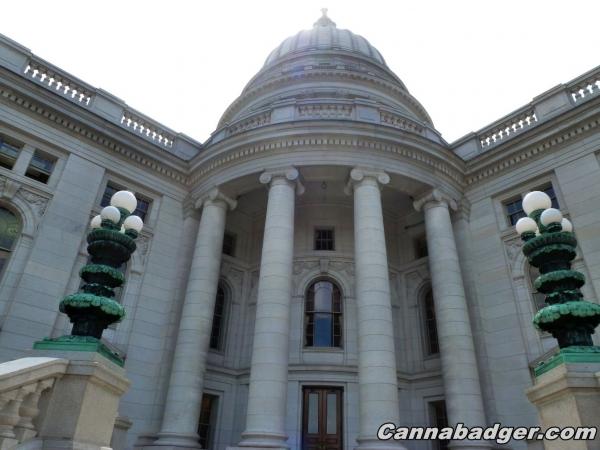Update: Dec. 13, 2019: The bill was formally introduced as Assembly Joint Resolution 32 on April 25, 2019, but has not progressed since, and it appears likely it will not get a vote this session. https://docs.legis.wisconsin.gov/2019/proposals/ajr32
-------
While many U.S. states and the District of Columbia have laws allowing citizens to collect signatures and place issues on the ballot, Wisconsin’s state constitution does not include such a provision. LRB-0151, a constitutional amendment being circulated by Rep. Gary Hebl (D-Sun Prairie) would both allow citizens to put issues before voters, as well as enabling them to veto legislatively-passed laws at the ballot box.
A news release issued today by Rep. Hebl says that under his proposal, in order to get a citizen veto referendum on the ballot, signatures equaling 4% of the total votes of the most recent gubernatorial election must be collected. http://www.thewheelerreport.com/wheeler_docs/files/0313hebl_01.pdfIf Wisconsin votes to reject a law it may not be reenacted during the same legislative biennium in which it was rejected, which will prevent the Legislature from circumventing the will of the people.
Proposing a law or constitutional amendment would take signatures equaling 6% and 8%, respectively, of the total vote in the most recent gubernatorial election. If voters approve citizen-led legislation, it cannot be repealed or amended by the legislature for two years after it goes into effect. After that two year period, the law can only be changed with two-thirds majorities in both the State Assembly and State Senate. Any law passed by the people of Wisconsin is also not subject to a veto from the Governor.
RELATED: Why Wisconsin can’t vote to legalize cannabis
Hebl said, “We as legislators are accountable to the people of our state. If voters believe legislators are passing legislation that is not in the best interest of the people of Wisconsin, the people should absolutely have the power to say ‘No.’ This constitutional amendment allows just that.” Addressing putting issues on the ballot, Hebl said, “If legislators are unable or unwilling to consider legislation that serves the public interest, there ought to be a mechanism for the citizens of this state to introduce that themselves.” So far, nineteen states have legalized medical cannabis through the initiative process.
While it may be difficult for Hebl’s proposal to gain traction in a GOP majority legislature that under the 8 years of former Gov. Walker’s tenure, has grown accustomed to calling the shots, that is exactly the reason LRB-0151 needs to be placed before voters by state lawmakers. If Wisconsin had this provision when states like California, Oregon, Washington and Colorado first legalized medical cannabis back in the late 1990s-early 2000s, the state could have developed a robust industry and exported that expertise. Instead, when it finally happens, that expertise will likely come from out of state and even international firms coming into the state. Contact your lawmakers and ask them to sign on to LRB-0151. We saw the power of cannabis advisory referendums last November. It’s time to make binding statewide referendums an option.
Here is the bill number and link to the bill as introduced: Assembly Joint Resolution 32 https://docs.legis.wisconsin.gov/2019/proposals/ajr32 https://docs.legis.wisconsin.gov/2019/proposals/ajr32

